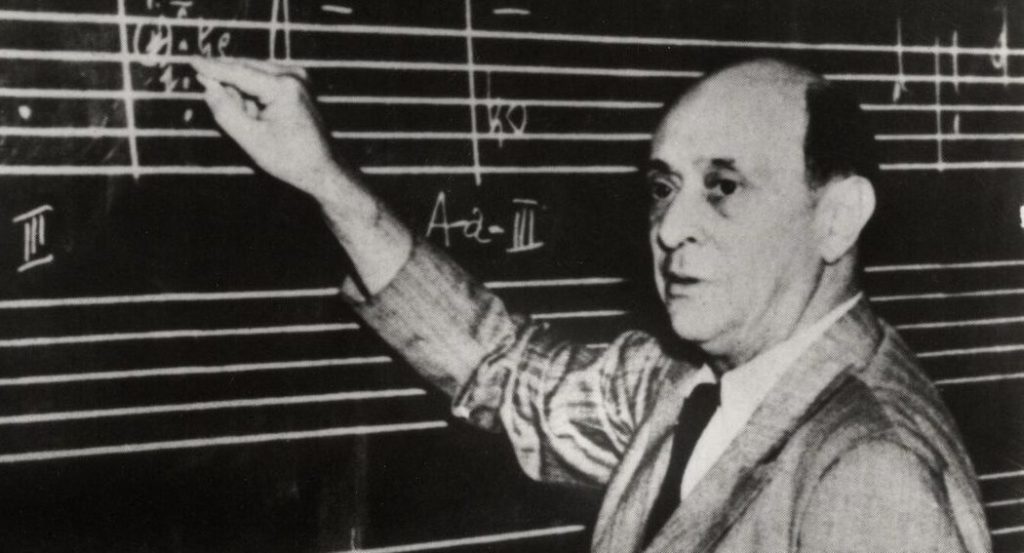
Arnold Schönberg lived during the last quarter of the 19th century and the first half of the 20th. He was a revolutionary, but more out of necessity than out of radical tendencies or free will. Schönberg only gradually freed himself from his late-romantic roots (Brahms, Wagner), which can still be heard in works like the oratorio Gurrelieder. His music became more atonal without altogether abandoning tonality or late-romantic phrasing. He was an innovator, firmly rooted in tradition.
After the three opuses 11 from 1911, a decisive period began. Schönberg distanced himself from traditional forms without a clear-cut alternative. Intuition and surprise were given a central role in music intended for small ensembles and performed in the same format. Only a decade later, the twelve-tone technique emerged: series of twelve notes without any musical hierarchy. All notes count equally.
Schönberg was German through and through, but his Jewish origins meant that from the 1920s onward, he witnessed the brutal ways Germany was heading towards. In the year Hitler came to power, Schönberg left Germany for the US. His harmony became more tonal until the end of his life. In June 2021, Composer of the Month author Emmanuel Overbeeke will take you along the works and life of Arnold Schönberg. You will hear, among other things, his early string quartet, which he showed to Johannes Brahms with great anticipation. How did that go? To find out, listen on weekdays between 4 and 5pm, starting Thursday 3 June.








